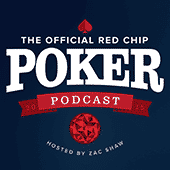What information does a donk bet communicate to you? Ed Miller joins us this week to outline his five different categories of donk bets, and how to pick up on the information embedded within to make optimal decisions. The donk bet is a disruptive play, and understanding the motivations behind that disruption are going to be key when planning your post-flop line.

A crucial part of the information game in poker is donk betting. In case you don’t know what donk betting is, let’s say you’re the preflop raiser and your opponent checks to you on the flop and you bet and they call and then all of a sudden on the turn, your opponent decides to bet out instead of checking to you as the raiser. That’s a donk bet, and there tends to be a lot of information in these bets when you’re playing low stakes cash games.
One reason to focus on donk bets is that many players are uncomfortable when faced with an out-of-position raise after being the preflop aggressor. When opponents all the sudden try to take initiative away from us, some of us panic. Many small stakes players talk about having the initiative and maintaining aggression through the game as a hallmark of winning play. They’ll say, “Well, you know how I win because I bet a lot or I raise a lot, I’m the aggressive one.” That may be true in a vacuum, in a passive game, since aggression is generally the way to beat passive games, and low stakes games are often passive. But it’s mistaken to generalize the concept and say if you aren’t the aggressive one at the table then you aren’t having an advantage.
Donk betting removes the initiative or challenges the initiative of the preflop aggressor, and makes players uncomfortable by disrupting their play. Disrupting is the first key to understanding what’s going on — this is often the intention of the donk bettor. People are not, for example, balancing their flop checks by donk betting one-third of the time, it’s less proactive and more reactive to things like board texture and perceived hand strength.
Ed Miller describes 5 main ways people are trying to disrupt the flow of the hand when they are donk betting.
Stabbing
Often times, players are donk betting to get folds with weak or marginal hands. They’re thinking, “Why don’t I just throw in a bet and see if everybody folds. I’m not going to check and call, I’m not going to check-raise, so if I just check I’m probably going to just lose. Let’s toss a bet in and see what happens.”
Probing
Probing is a bit different than stabbing. Probing donk bettors often have a hand of some value, maybe top-pair no kicker, or a pocket pair that missed the board and there’s an overcard, so now they have second pair. This donk bettor is concerned that if they just check/call, their opponent is just going to keep firing bets, and they’re not going to know where they are at. The probing bet seeks to get information to assuage or confirm these concerns.
Defending
Players donk betting with hands they are defending typically have a stronger hand than those probing or stabbing. The goal here is to avoid giving a free card. The donk bettor usually has a hand where they know it’s decent, but they’re still worried that if they check/call and check/call again on turn, they might be in trouble. These are hands like top pair, good kicker.
Protecting
Protecting donk bets typically represent slightly stronger hands than defending donk bets. These players don’t want the flop to go check/check because either they’re going to give away a free card, or they’re going to miss value. The additional strength of their hand — for example, top pair top kicker, or two pair on a two-flush, two-straight board — prompts them to donk bet to avoid being drawn out on, and also get value as they probably have the best hand at the moment.
Inducing
Inducing is a little more next-level, and is the rarest of the five motivations to donk bet. Inducing donk bets happen when the player has a strong hand or a ton of equity, and they feel that if they check the flop, they’re afraid of losing value to a check. With knowledge of their opponent, and their own table image, a player might feel that betting would be the best way to induce action from their opponent. Again, these are very player- and situation-dependent and more commonly seen above the low stakes.

More Ed Miller please. I can’t be sure but I think I also see some donk bets to protect a draw, esp. flush draws. The smallish donk bet is designed to induce a call for decent pot odds. I suppose then the correct play would be to raise if ahead or with the nut draw, abandon weak draws.
The problem with donk-betting, is that if you donk-bet in all of these five situations, your opponents know that you are in neither of them when you do not donk, and you become easily exploitable.
I would very rarely donk, and only for inducing. Otherwise I think it’s a sign of weakness, and your opponent can just exploit you by re-raising hard.
So if you only donk to induce,wouldn’t that became very exploitable? Maybe polarizing your donk bet so it’s either air or nuts balances the donk lead. Get villain to fold or refrained at the wrong time.
Reraise *